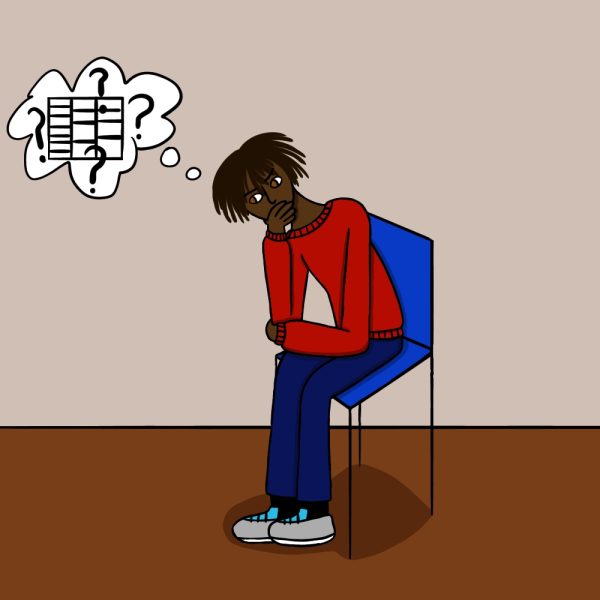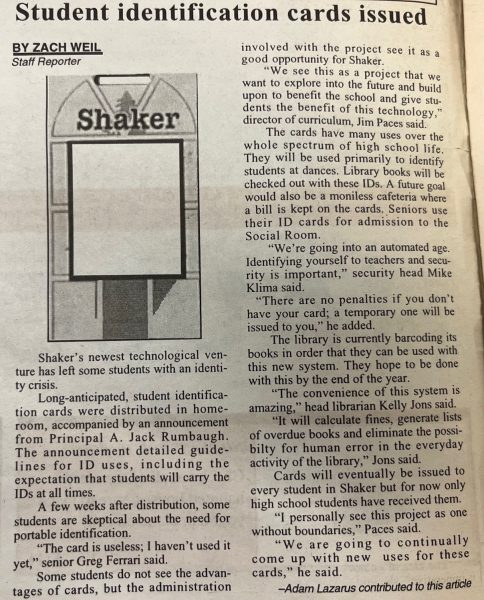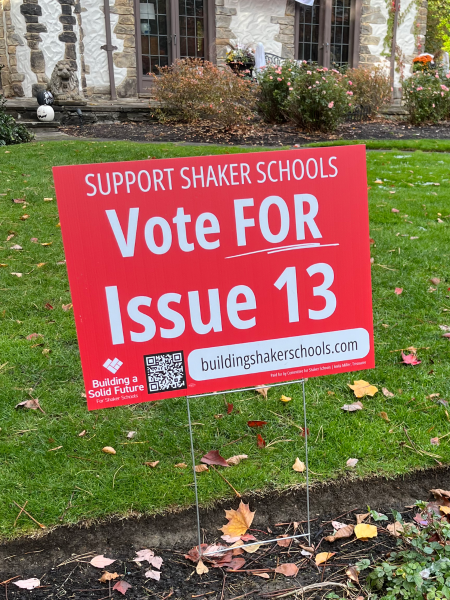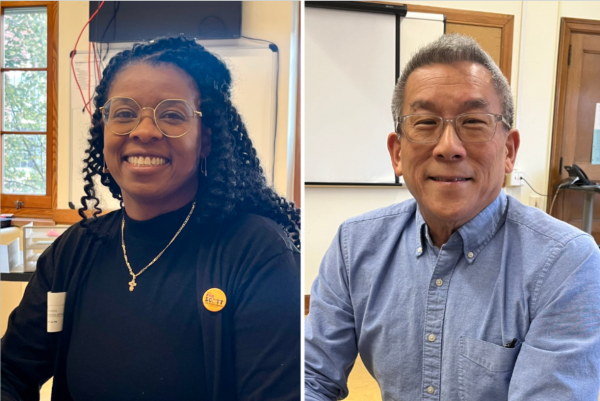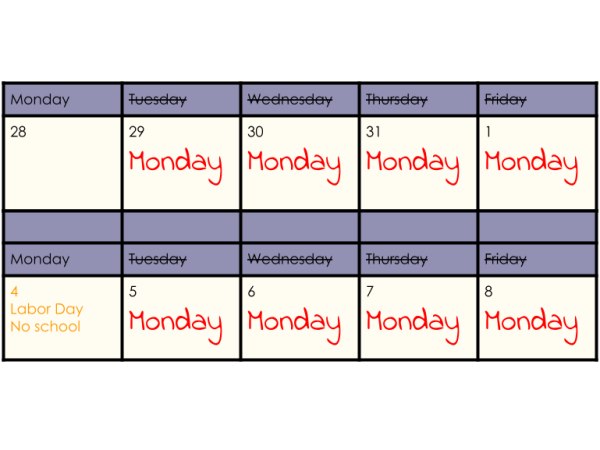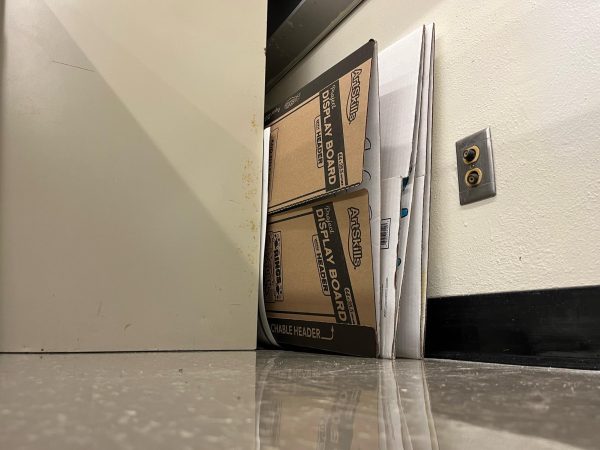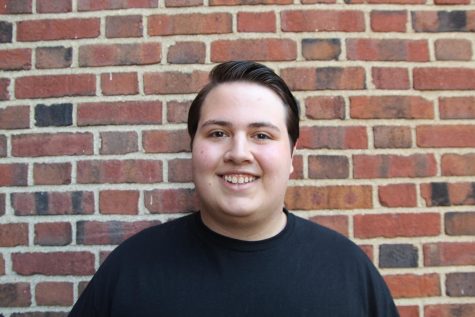LGBT Groups Debate Same-Sex Marriage Date
Brown: A 2014 ballot date is ideal, but 2016 is the way to win
“So much has happened in two years,” said senior Lucy Richman, Gay-Straight Alliance president. “It’s hard to tell what will happen in the next year.”
As she spoke of the great progress of the LGBT rights movement, her voice grew more urgent. That year she spoke of? It’s the past and future of Ohio’s same-sex marriage law. For the students who meet every Thursday in Room 231, marriage is within their grasp.
“I think people in GSA definitely think just about anything is possible,” said Richman, whose dark hair, voluminous and curly, identifies her in Shaker hallways.
Unfortunately, the movement isn’t united. Conflicting views of time threaten to split it, and these disagreements threaten efforts to achieve marriage equality in Ohio.
A referendum is a way for voters to put an issue on the ballot themselves. In this case, supporters of marriage equality are pushing to put same-sex marriage on the ballot for a popular vote that would overturn Ohio’s 2008 constitutional amendment “defending” marriage.
FreedomOhio, an LGBT rights group, is pushing for a Nov. 4, 2014 date. Other groups, such as Equality Ohio, the Human Rights Campaign, the American Civil Liberties Union and other LGBT advocacy groups want to put the referendum on the ballot in 2016.
When the Cleveland Stonewall Democrats, a local chapter of a national LGBT rights advocacy group, held a Feb. 20 meeting, the two sides took the podium. (The group is named after a 1969 incident in which patrons of New York City’s Stonewall Inn fought back against police raids). Cleveland Stonewall will decide whether to formally endorse the referendum when it makes it to the ballot. Tucked away in a crowded meeting room at Trinity Cathedral, the meeting had tangible tensions.
I was the youngest person in the room. The oldest person in the room said what we were all thinking: Can’t we set aside our disagreements? We all have the same goals.
It was clear, however, that ego stood in the way.
“FreedomOhio and Equality Ohio can’t be best buddies,” FreedomOhio co-founder and Executive Director Ian James said at the meeting.
Michael Premo, campaign manager for Why Marriage Matters, an educational outreach group, took the other side, arguing that 2014 is too early and that the ballot language will enable court challenges.
Richman believes both groups have a point. “FreedomOhio and Equality Ohio both make completely valid arguments. And it’s going to be really hard to tell whose argument is actually correct,” she said.
“We can do better than [2016],” James said at the meeting, campaigning hard for the urgency of now. However, not only is a 2014 bid less likely to succeed, but the language of the 2014 law could have drastic consequences. The language not only allows religious institutions to object to marrying same-sex couples but also to refuse to recognize the same-sex marriages. And there is no definition of religious institutions in the Ohio constitution.
Hobby Lobby, a national craft store chain, can–and is–claiming they are a religious institution. Right now, they are refusing to pay for birth control, which is required under the Affordable Care Act, citing a religious objection. So what’s to say they won’t refuse marital benefits to same-sex couples?
Advocacy groups promoting 2016 argue that the referendum is not only more likely to succeed then, but also that the language will prevent such Hobby Lobby exemptions.
I see the merits of urgency. I see the emotional drive. I see the hardship and unfairness endured by the LGBT community. But I see the same goal for both groups: marriage equality–and then full equality.
For so many young people, this cause is so close.
“It’s kind of just become a part of everyone’s lives [so] that people in GSA just see [the possibility of marriage equality] as normal. Especially in Shaker, we really have trouble comprehending that in other places it’s not like that,” Richman said. In the aughts, LGBT rights have seen mainly success across the country. So why wait until 2016? Pragmatism is just so unappealing. Besides, what’s so bad about failure in Ohio?
Well, a lot.
Failure looks bad in Ohio. Really bad.
Nicole Thomas, a regional field organizer for Equality Ohio, explained why. “Ohio is a massive testing ground for a lot of issues and policies,” said Thomas, “and people not understanding that, to see the first failure . . . what does that look like in the national narrative?”
Not good.
According to Thomas, a failure to pass a marriage referendum in 2014 would mean a lot more than a longer wait. A defeat would drain financial resources and momentum while feeding the opposition — all of which could make it harder to pass the referendum if it’s put on the ballot again in 2016. It also makes education, anti-bullying and employment non-discrimination efforts more challenging.
“Failure is a lot more than, ‘Oh, we failed,’” Thomas said. She fears a loss of reform and educational progress, as people revert to their previous opinions.
Thomas argues that the two sides aren’t different. “We have the same feelings, the same heart, the same vested interest as you,” Thomas said. “The difference is not that we don’t care . . . it’s that we want [to have success] for everyone.”
But young people see marriage equality on Ohio’s horizon, and they want it now.
“There’s so much momentum right now that if it got on the ballot, people would come out to vote for that reason explicitly,” Richman said of the 2014 ballot date.
Momentum doesn’t always get out the vote, though. In a low-turnout year — a non-presidential year — the electorate shrinks dramatically. And unfortunately, enthusiastic support and campaign contributions don’t necessarily mean more votes. As much as we may want marriage equality, it just doesn’t make sense to take it to the ballot in Ohio in 2014.
To win in 2016 is to show the rest of the nation that Ohio’s political landscape is changing. Losing in 2014 would show just the opposite. The time we want is now — but if we hope to bring marriage equality to Ohio, we need more of it.

